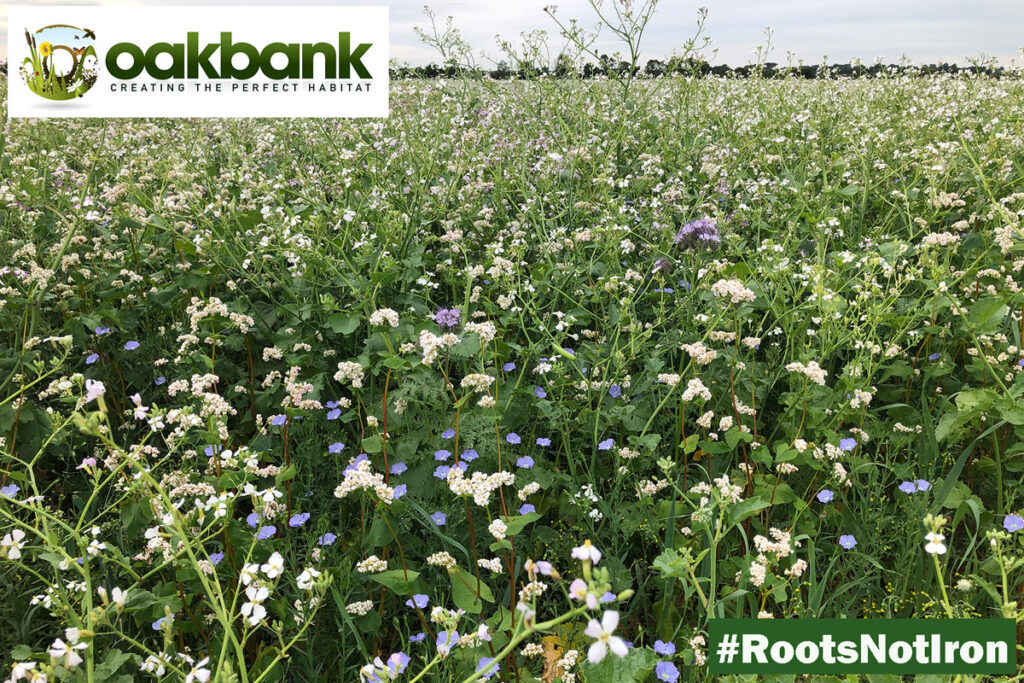The Importance of Keeping Land Covered
In the aftermath of a failed cash crop, the temptation to leave fields bare may seem appealing, but the consequences can be dire. Bare soil is vulnerable to erosion, nutrient loss, and weed infestation, compromising long-term soil health and productivity. In contrast, keeping land covered with summer cover crops offers a myriad of benefits that extend far beyond mere soil protection.
Diverse Roots, Enhanced Soil Structure
One of the most compelling reasons to incorporate summer cover crops is their profound impact on soil structure. Unlike monoculture cash crops, cover crops boast diverse root systems that penetrate deep into the soil, breaking up compacted layers and promoting better water infiltration and retention. This enhanced soil structure creates a conducive environment for beneficial soil organisms, improves nutrient cycling, and reduces the risk of erosion.
Consider the example of a cover crop mix comprising sunflowers, buckwheat, and legumes. Sunflowers, with their deep taproots, penetrate compacted soil layers, while buckwheat’s fibrous root system adds organic matter and improves soil friability. Meanwhile, legumes enrich the soil with nitrogen through biological nitrogen fixation. Together, these cover crops work synergistically to rejuvenate the soil and lay the foundation for a successful next crop.
Economic Returns: Turning Setbacks into Opportunities
While the immediate benefits of summer cover crops are evident in soil improvement, their positive impact extends to the economic realm as well. By enhancing soil health and fertility, cover crops pave the way for higher yields and better quality in subsequent cash crops. Additionally, the reduced need for synthetic fertilizers and pesticides translates into cost savings for farmers, contributing to greater profitability in the long run.
Let’s explore some examples of how summer cover crops can deliver economic returns to the next crop:
- Increased Yield Potential: By rejuvenating soil health and nutrient availability, summer cover crops set the stage for increased yield potential in subsequent cash crops such as wheat, barley, or oilseed rape. Studies have shown that fields with a history of cover cropping often yield higher and more consistent harvests compared to conventionally managed fields. I have recently been reading about some of the work being done by Professor Andy Neal at Rothamsted which shows how increasing organic matter is crucial for improving pore space connectivity in your soil. This influences so many aspects of crop production, not least the roots ability to thrive and provide improved nutrition to the plant.
- Reduced Input Costs: Summer cover crops reduce the need for external inputs such as fertilizers and herbicides. By harnessing natural processes like nitrogen fixation and weed suppression, cover crops help farmers reduce input costs while maintaining or even improving crop yields. This not only enhances profitability but also promotes environmentally sustainable farming practices.
- Improved Crop Resilience: Healthy soils cultivated through the use of summer cover crops foster greater crop resilience in the face of environmental stressors such as drought or disease. By enhancing soil water retention and nutrient availability, cover crops enable cash crops to better withstand adverse conditions, ensuring a more reliable harvest even in challenging years.
A Sustainable Path Forward
As arable farmers in England navigate the complexities of modern agriculture, the adoption of summer cover crops emerges as a beacon of hope for a more sustainable future. By harnessing the power of diverse root systems and embracing the principles of soil conservation, farmers can not only mitigate the impacts of failed cash crops but also lay the groundwork for long-term prosperity and resilience. With funding coming from both public (SFI, Countryside Stewardship) and private (Water companies, carbon schemes) sources, farmers can mitigate many of their costs to achieve these long term goals.
In conclusion, the utilization of summer cover crops represents a paradigm shift in agricultural practices, transforming setbacks into opportunities and challenges into triumphs. By keeping land covered and enhancing soil structure through the strategic integration of diverse cover crop species, arable farmers in England can pave the way for a more resilient, productive, and sustainable agricultural landscape for generations to come.

